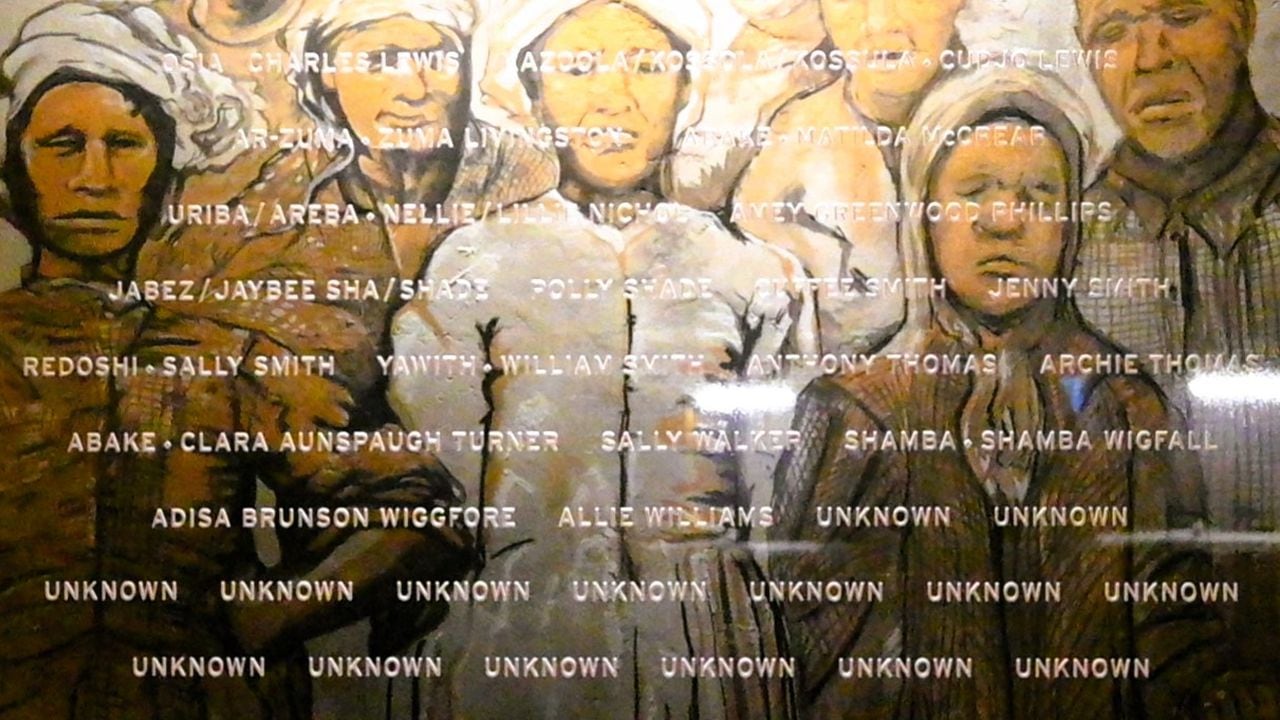Clotilda descendants seek meetings with other Meaher family members following historic â60 Minutesâ episode
Representatives of the Clotilda Descendant’s Association are hopeful more descendants of the slave ship’s owner will come forward with artifacts, oral histories and historical documents following the group’s historic meeting in early July with two great, great-granddaughters that aired Sunday on CBS “60 Minutes.”
But so far, attempts by the Clotilda descendants and representatives for the estate of Joe Meaher and the widow of Robert Meaher have gone largely unanswered. Joe and Robert Meaher, both deceased, were two of three great-grandsons of Timothy Meaher, the wealthy financier of the Clotilda’s voyage from Benin, Africa to Mobile in 1860, with 110 slaves aboard.
The Clotilda slave ship brought the last known group of Africans into slavery to the U.S., long after transatlantic slaving voyages were outlawed. Africatown, the community the Clotilda survivors settled north of Mobile, is the only known surviving community founded by African slaves.
Jeremy Ellis, president of the Clotilda Descendants Association, told AL.com on Wednesday that it’s his understanding that the estate of Joe Meaher may have additional artifacts or resources that “could shed a light on the descendant’s ancestors as well as perhaps, the overall Clotilda, Africatown story.”
The group has attempted to meet with Heath Eckert, who could not be reached for comment. Eckert is described in the recently released book by freelance journalist and author Nick Tabor, “Africatown: America’s Last Slave Ship and the Community it Created” as a “close friend and business partner” to Joe Meaher. In 2006, Meaher asked that his property to be left with Eckert or to Eckert’s descendants.
Ellis was joined by fellow Clotilda descendants Joycelyn Davis and Patricia Fraizer for a meeting – moderated by Anderson Cooper on ‘60 Minutes’ – with Helen and Meg Meaher, daughters of Gus Meaher who is the only great-grandson to Timothy Meaher that is alive. Thus far, Helen, an attorney, and Meg, an accountant, have been the only two Meaher descendants to meet with the Clotilda descendants.
“We are not directing anything at Helen and Meg, and from my perspective, they’ve been great partners,” Ellis said. “We wanted to commend their actions and continue with the partnership.”
Ellis said the news release, issued on Tuesday, was more aimed at wanting to have conversations with Eckert and the widow of Robert Meaher, Patricia. Ellis is a sixth-generation descendant of Pollee and Rose Allen, both enslaved Africans on the Clotilda.
Helen and Meg Meaher, in a family statement, declined to comment about the Clotilda Descendant’s request. Meg Meaher, during the “60 Minutes” segment, described her family as one with lots of layers and complexities, and some dysfunctions underscored by a lawsuit among family members that was resolved about a year ago.
The Meaher family statement to AL.com this week focused on the “60 Minutes” program, which included a lengthy segment on their sit-down conversation Helen and Meg Meaher had with the Clotilda Descendants:
“First and foremost, we want to acknowledge that the actions by our ancestor, Timothy Meaher, were evil and unforgivable and had consequences that have impacted generations of people. We also want to acknowledge that our family has been silent and distant for far too long.
We, the current generation of the Meaher family, are committed to ending the silence and narrowing the distance. We have been meeting with different community leaders and stakeholders for the past 18 months. These conversations are helping to guide the actions our family takes as we strive to be better partners in the community.
We did not seek media attention. We did take the opportunity to participate in an updated segment on Africatown with CBS ‘60 Minutes.’ There is much work to be done, and we are committed to continuing the dialogue, building relationships, and to listening and learning.”
During the segment, Meg Meaher said that she and her sister found no artifacts that might have belonged to Clotilda survivors or be associated with the ship’s voyage.
Pat Frazier, during the segment, said, “I can’t believe there aren’t family relics. I want to believe people preserve things of some significance.”
The only artifact presented during the segment was a cane, once owned by Burns Meaher, brother to Timothy Meaher, who enslaved Lottie Dennison, Pat Frazier’s great-great grandmother.
The moment was emotional, with Cooper asking Fraizer how she felt touching the cane.
“It makes me sad,” said Frazier. “It just really makes you remember the hardship.”
Said Cooper, “I can hear the sadness.”
Tabor’s reporting for his book suggests there artifacts out there. According to Tabor’s account, Robert Meaher had been reportedly in discussions with the History Museum of Mobile about donating some artifacts from the Clotilda, including a pistol and an ornate drinking cup. The donations never occurred.
“A more intriguing question, however, is what kinds of documents the family might possess and what they could reveal about the Clotilda story,” according to a passage in Tabor’s book. “‘They never throw anything away,’ said one person acquainted with the family.”
